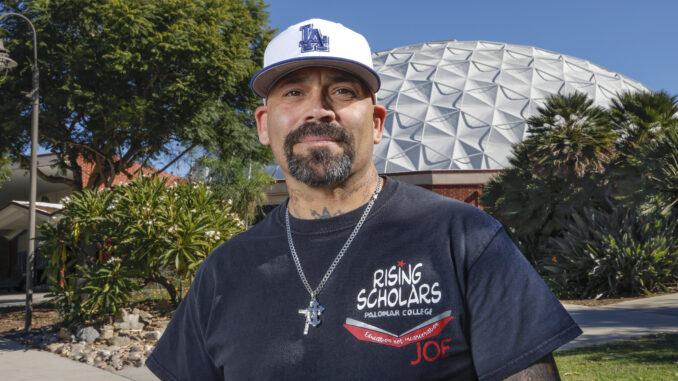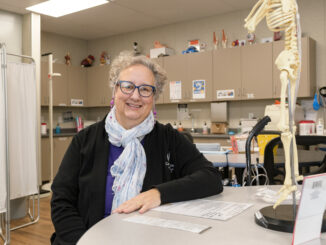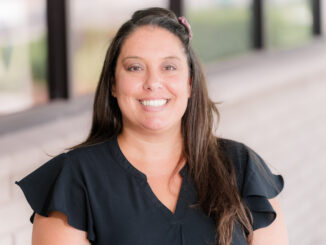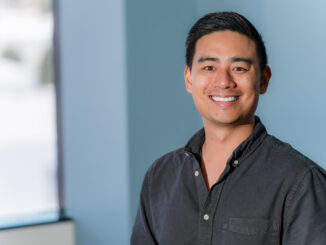
After serving 26 years in prison, Palomar College graduate Jose Romero wants to show others that rehabilitation is possible
by Dorsey Griffith
Growing up the son of addicted parents with a history of gang affiliation and domestic abuse in the housing projects of East Los Angeles, Jose Romero never saw much of a future for himself. Falling into his parents’ patterns—and much worse— seemed inevitable.
Today, it’s hard to square what Romero did in the past with what he is doing now—his recovery and rehabilitation, college education and budding career. His transformation has been fueled, in part, by the Palomar College Rising Scholars program, which paid for several school-related expenses and provided a supportive community to help him navigate the challenges he faced after being in prison for 26 years.
The California Community College’s (CCC) network of Rising Scholars programs works to incorporate the needs of incarcerated and formerly incarcerated students into the community college system and meet equity initiatives outlined in Vision 2030, a strategic roadmap overseen by the CCC Chancellor’s Office.
“My goal is to become an academic counselor or sociology professor, to teach students on the other side that even when we make wrong choices, we can be rehabilitated.”
Jose Romero, Rising Scholar, Palomar College Graduate and California State University San Marcos Student
Now 54, Romero is rebuilding his life and relationships with a fulfilling job, an associate degree and progress toward his bachelor’s degree.
Romero’s life unfolded on the streets. After his father left for Mexico and his mother brought a boyfriend into their household, he wasn’t often welcome in his own home.
“I would see my mom around her friends or homeboys and girls and always having a good time,” he recalls. “I would ask her, ‘Why couldn’t she be like that with us?’ We always got kicked out on the streets.”
Gangs were a logical place to land, and before he turned 18, he had been arrested for crimes like graffiti, vandalism, petty theft, robbery, drug dealing and auto theft. At 26, he committed his last felony during a drug deal—first-degree murder—and was sentenced to 25 years to life in prison, an outcome he believed meant no hope of coming home.
Things got worse. “I got involved in a lot of disruptive behavior in prison, committing violence, getting write-ups and using drugs. I was addicted to heroin, cocaine and meth.” The drugs, smuggled into the prison, nearly killed him—three times. After his third OD, he says, he prayed to God “to help me change and figure out a better way.”
An old friend he saw in 2008 at Calipatria State Prison, near Mexicali, planted the seed of the possibility of a way out. For a shot at parole, he’d need to commit to real change. Prison officials were skeptical, but after 12 years of prison clerical work, college courses, and self-help programs, he earned parole in 2023.
At a transitional home in Vista, he was introduced to the Rising Scholars program, where he was convinced to continue his studies toward an AA degree in sociology and behavioral science at Palomar College, which has 400 Rising Scholars program students. He now works there as a student support specialist, helping other formerly incarcerated students enroll in classes.
“I love it,” he said. “I can encourage them to get their degrees and work to find a better job for themselves.” These include many mothers in recovery working to regain custody of young children. “When I see them at the end of the semester, and they say, ‘Hey, I got an A,’ that keeps me coming back every day.”
Romero finished his AA degree and transferred to San Marcos State University to pursue his BA in sociology with a minor in criminology. He’d also like to get a master’s degree.
“My goal is to become an academic counselor or sociology professor, to teach students on the other side that even when we make wrong choices, we can be rehabilitated. That’s my goal.”
For more info about the Rising Scholars Network, go to risingscholarsnetwork.org. To learn more about the California Community Colleges Chancellor’s Office and Vision 2030, visit www.cccco.edu/About-Us/Vision-2030.



